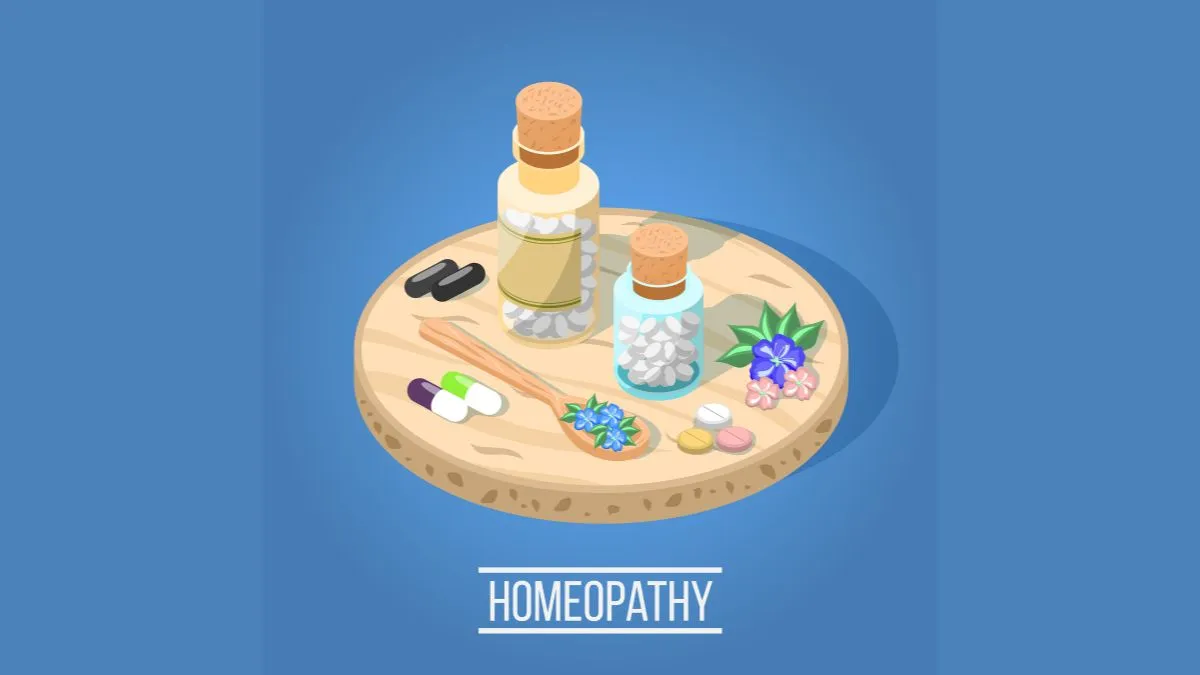
When it comes to health, today's individuals are searching for gentle, natural, and permanent solutions. One alternative therapy that has existed for more than 200 years is homeopathy. While millions of individuals worldwide depend on it, there are a few myths and uncertainties regarding the manner in which it operates. Let's place homeopathy under the microscope and get the facts.
Table of Content:-
Common Myths and Misconceptions About Homeopathy
Homeopathy is one of the most popular branches of alternative medicine. A lot of people consider it, yet there are certain misconceptions that hold people back from availing the benefits of homeopathic treatment. Scroll down as an expert busts common myths about homeopathy.
Homeopathic Pills Are Nothing But Sugar Pills- Myth or Reality
One of the most popular myths is that homeopathic medicines are sweet sugar pills. The reality is that these pills are nothing but a substance for bringing the medicine to the body.
Dr Manju Singh, Senior Homeopathic Medical Officer at SBL Global, shares, “The true homeopathic remedy is prepared from natural sources such as plants, minerals, and even animal materials, which are transformed using a process known as potentisation. It makes sure the medicine is not lost in its healing power and is absolutely safe and non-toxic.”
Homeopathy is a Slow Process
Another common misconception is that homeopathy is too slow in giving results. In fact, the rate of recovery is subject to the nature of the disease. For acute ailments such as cough, cold, or fever, homeopathy can be effective very quickly and relieve the patient within hours or days. Research published in NCBI supports homeopathy for its growing popularity as an alternative to allopathic treatment. For chronic conditions like arthritis, migraines, or skin issues, longer treatment may be necessary because it is designed to fix the underlying cause and not merely the symptoms.
Also Read: What Is Homeopathy? The Nuances Explained By A Homeopathy Doctor
Homeopathy Is Only Effective In Acute Illnesses
Most people believe homeopathy can only be used to treat mild illnesses like allergies or indigestion. This is a partial truth about homeopathy.
Dr Manju Singh shares, “Homeopathy has been used with great success to deal with chronic issues like asthma, eczema, thyroid issues, depression, and even lifestyle disorders. Physicians commonly employ it as an adjunct to traditional medicine, particularly for patients who desire fewer side effects.”
Skeptics commonly claim that homeopathy is not scientifically supported. Nonetheless, a number of clinical trials and research articles have demonstrated positive outcomes. According to the National Center for Complementary and Integrative Health, homeopathy is based on the concept of "like cures like" – i.e., a substance that will produce certain symptoms in a healthy individual will be able to heal the same symptoms in an ill individual, if administered in a highly diluted form. Contemporary science is gradually starting to look into ways through which homeopathic dilutions could trigger the body's own healing process.
Also Read: Top 5 Alternative Treatment for Arthritis
How Homeopathy Works for the Body
“In contrast to traditional medicine that tends to combat symptoms directly, homeopathy considers the entire individual, physical, emotional, and mental health. A homeopath will read a patient's lifestyle, personality, and medical history before prescribing medication. The entire system is brought into balance from within by this approach, as opposed to providing temporary relief,” explains Dr Manju Singh.
Personalised treatment
The other specialty of homeopathy is that it is personalised. Two individuals with the same disease could receive entirely different medicines based on their general state of being. As per a study, homeopathy may be extremely successful in ensuring a long-term healthy lifestyle through this highly effective customized approach.
Zero side-effects
“One of the most powerful strengths of homeopathy is safety. The drugs are non-poisonous, devoid of chemical side effects, and safe for the entire age group, from babies to elderly persons. They can be administered along with conventional medications without producing adverse drug interactions. This makes homeopathy a preferable choice among those who desire subtle healing,” shares Dr Manju Singh.
Final Word
As there is rising awareness about natural and sustainable healthy techniques, individuals are adopting homeopathy. The indutry is witnessing a renewed interest, though it may not entirely replace mainstream medicine or treatments in severe situations like surgeries or accidents. However, it is growing as a strong foundation for preventive care and treating chronic illness effectively.
Homeopathy is an organised sector in healthcare that offers alternative medicine and collaborates with the body's underlying treatment capabilities. By treating the disease and the person as a whole, it presents a way to improve overall welfare.
Also watch this video
Read Next
7 Habits of Highly Productive People
How we keep this article up to date:
We work with experts and keep a close eye on the latest in health and wellness. Whenever there is a new research or helpful information, we update our articles with accurate and useful advice.
Current Version
Sep 26, 2025 17:27 IST
Published By : Chanchal Sengar
